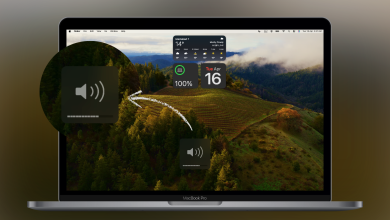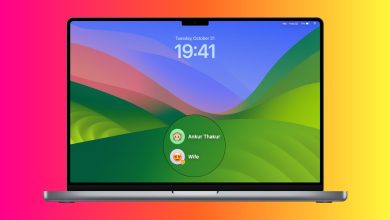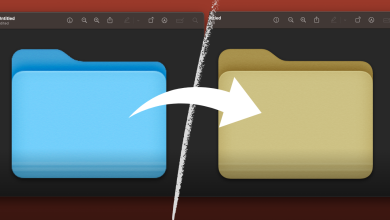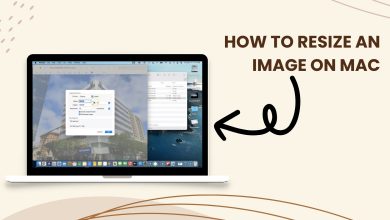How to Fix “USB Accessories Disabled” Error on MacOS?
If there is a referendum for the most popular Mac error, one of the top contestants would be the USB accessories disabled message. This error can happen to any Mac user. For some, it is triggered when a USB device is inserted into the system, whereas, for others, it is caused even when no USB device is attached to the system.

Whenever there is a power surge or the Mac thinks there is one, then to safeguard the system it disables all its USB accessories. This issue can be caused by a device if you have attached a device to the Mac that is power-hungry. And in that case, the USB accessories disabled message on your Mac can be cured by using a USB-powered hub.
What Causes “USB Accessories Disabled” Error?
If that is not the case, then the USB accessories disabled message can be caused by many factors along with hardware issues, but mainly, the following ones:
- Outdated OS of the System: If the macOS of your system is not updated to the latest build, it may conflict with other OS modules/kernels (like USB extension kernel) and cause the issue at hand.
- Corrupt SMC: SMC manages the low-level settings like power to the different system devices including USB ports. If the SMC itself has become corrupt, it may cause the false positive of a power surge on a USB port, thus forcing the Mac to disable all the USB accessories.
- Corrupt NVRAM and PRAM: If any of these memories are stuck in an error state, then can cause a power surge on a USB port and thus cause the error under discussion.
- Malware Infection: If your Mac is infected with malware and if that malware tries to access a USB device, the USB device may start drawing more power than the USB port can provide, thus the USB accessories disabled message.
Before diving into more detailed solutions, check if trying any of the steps mentioned in the following list solves your issue:
- Make sure the USB ports and any other device that you are using on it are clear of lint/debris. Also, check if the pins inside the USB ports are not making a wrong connection to another side.
- Check if re-plugging all the USB peripherals solves the issue.
- If the issue is triggered after inserting another device, then make sure the cable of that device is not damaged or try another cable with the device.
- Check if booting your Mac with the bare minimums solves the issue.
- If the issue is occurring due to a card, then check if using a card adapter clears out the issue.
- Check if plugging the problematic device into another port solves the issue, especially, inserting to the backports of the Mac.
Update the macOS of Your System to the Latest Build
If the macOS of your system is not updated to the latest build, it may conflict with other system modules (like USB ports) and cause the USB accessories disabled message. Here, updating the macOS of your system to the latest build may solve the USB problem.
- Open the system’s Preferences and open Software Update.
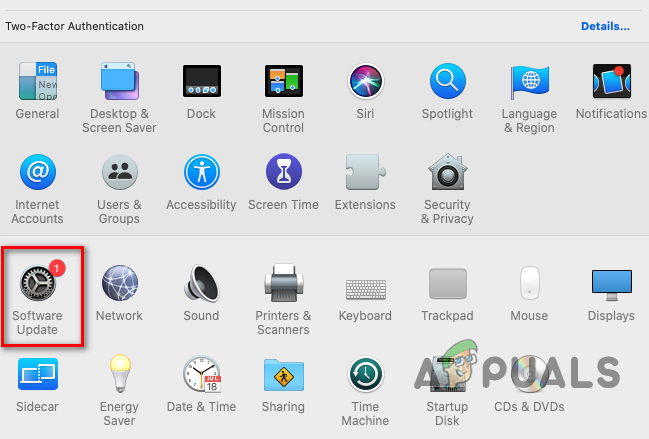
Open Software Update in the Mac’s Preferences - Now, check if an OS update is available.
- If so, click on Update Now or Upgrade Now (in case of an OS version update) and follow the prompts to download and install the macOS update.
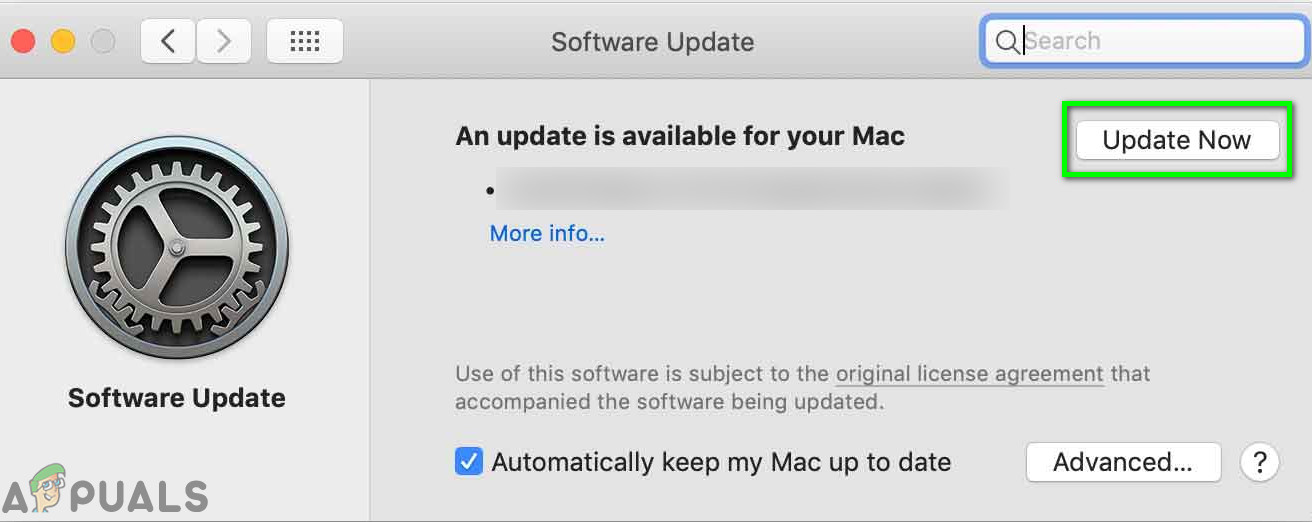
Click Update Now in Software Update - Once the OS is updated, restart your system and check if the USB accessories issue is resolved.
Boot Your Mac Machine into the Safe Mode
When you boot your Mac into the Safe mode, it clears out certain logs, directories, kernels (like USB kernel extension) that may be causing the USB issue. In this context, booting your Mac into the Sade Mode may solve the problem.
- Firstly, power off your Mac.
- Now power on your system and immediately hold the Shift key, just before seeing the Apple logo.
- When the Apple logo is shown, un-hold the Shift key and let the progress bar complete.
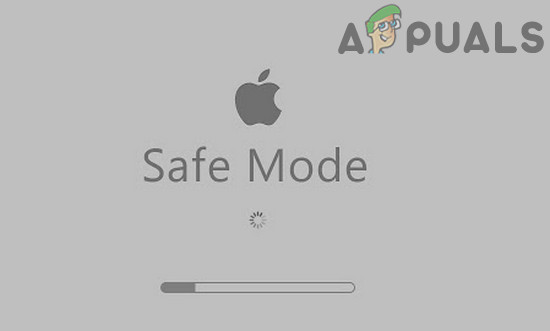
Boot MacBook in Safe Mode - Once the system is booted into the safe mode, boot it into the normal mode and check if the USB disabled issue is resolved.
Rese the NVRAM and PRAM Memories
NVRAM and PRAM are memories used to store certain Mac settings and are quickly access then when needed. If any of the memories are stuck in an error state, then the Mac may fail to access certain USB ports, resulting in the USB accessories disabled issue. In such a case, resetting NVRAM and PRAM to the defaults may solve the USB problem.
- Firstly, power off your Mac machine and press/hold the following keys:
POWER + COMMAND + OPTION (Alt) + P + R

Reset PRAM NVRAM - Keep holding the above-mentioned keys till you hear the startup sound for the 2nd time and then release the keys. In the case of a Mac with T2 chips, you may release the above-mentioned keys when the Apple logo is shown on the screen for the 2nd In both cases, it may take you to hold the keys for around 30 seconds.
- Once your Mac machine is powered on, check if the Mac is clear of the USB accessories.
- If that did not work, then you may reset SMC (as discussed later in this article), and when your system boots from the SMC, perform an NVRAM/ PRAM reset to check if that clears out the USB issue.
Scan Your Mac for a Malware
If your Mac machine is infected with malware and that malware is interfering with the USB kernels of the OS, then it can cause the USB accessories issue at hand. In such a scenario, scanning your Mac for malware and removing the malware may solve the problem.
- Launch a web browser and download a free virus checker like Bitdefender.

Download Free Version of Bitdefender - Now launch the downloaded application and follow the prompts to start the malware scan of your computer.
- Once the scan is complete, remove any detections made by the scanner and then check if your system is working fine.
Use the Disk Utility’s First Aid to Repair the Disk Errors
If the directory structure of your disk or disk is having some errors, then the Mac may throw the USB error at hand. Here, using First Aid in the Disk Utility to repair the disk errors may solve the problem.
- Launch the Finder and open Applications.
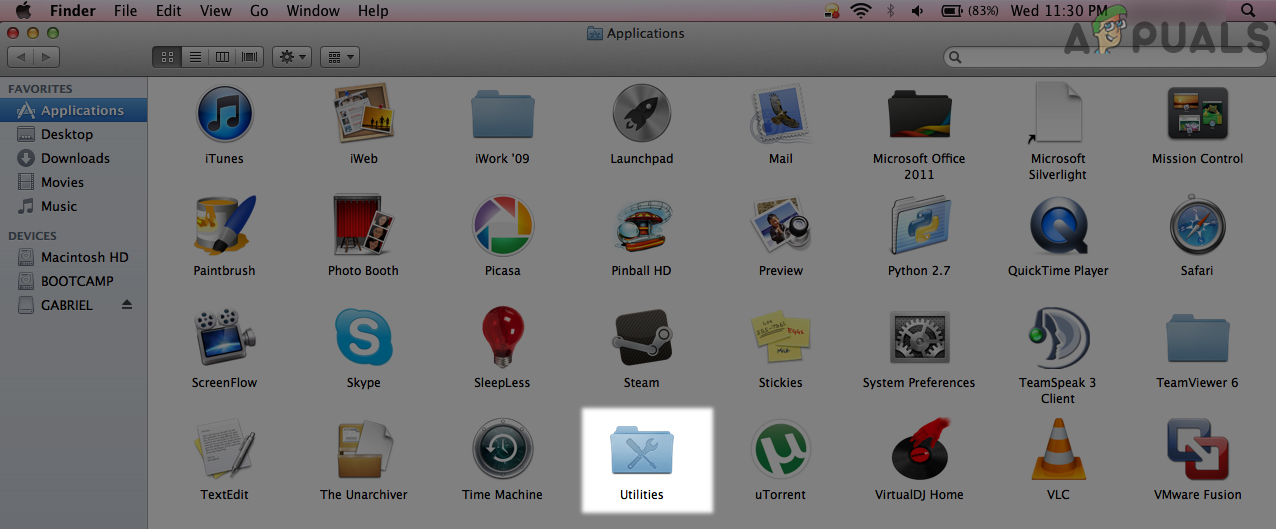
Open Utilities in the Applications folder of the Mac - Now select Utilities and open the Disk Utility.
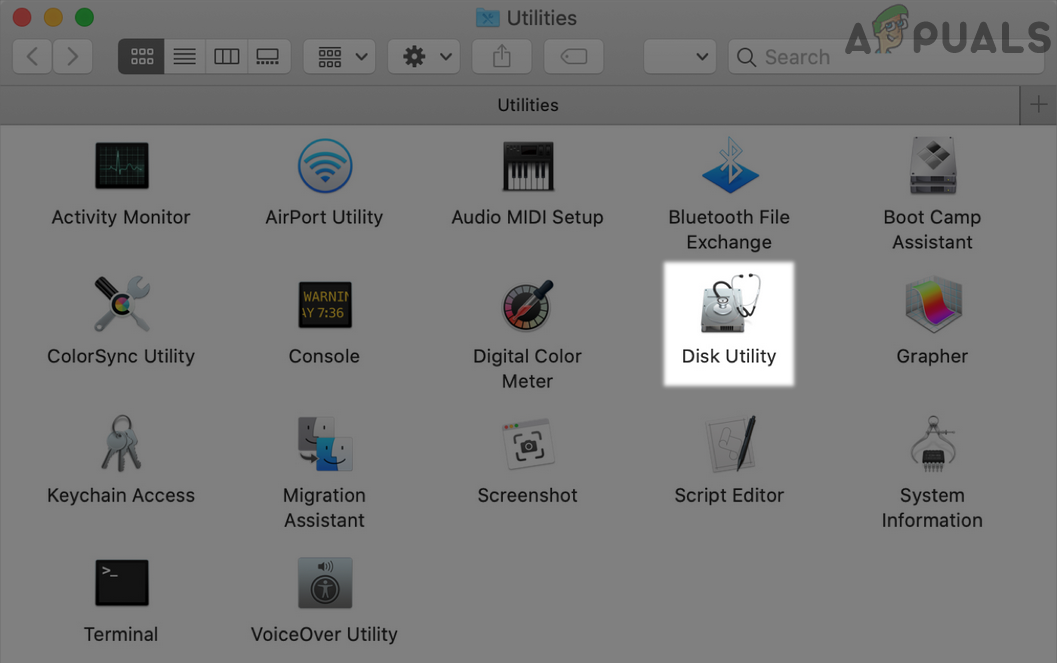
Open Disk Utility in the Mac’s Utilities - Then, in the sidebar of the Disk Utility, select your Macintosh HD.
- Now, on the top bar of the window, select First Aid and let the process complete.
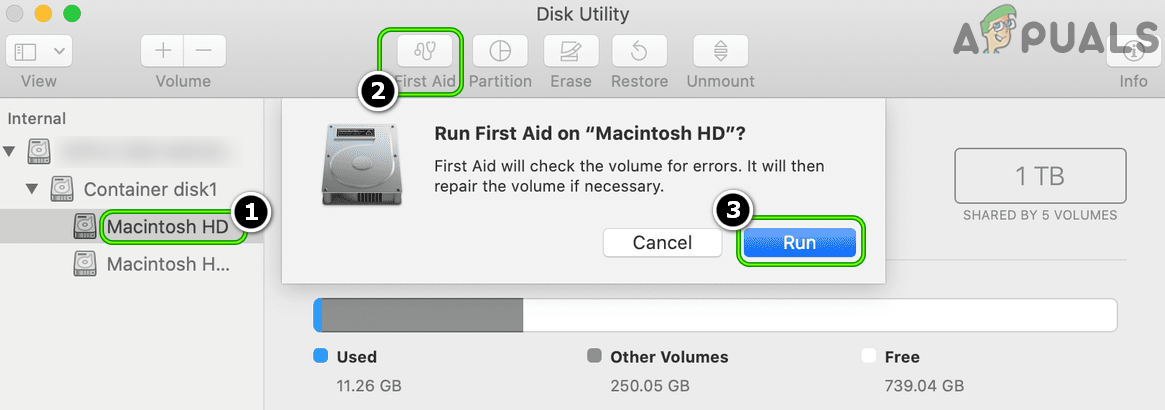
Run First Aid on Macintosh HD - Afterward, check if your Mac is clear of the USB accessories issue.
Perform an SMC Reset
System Management Controller or SMC controls the low-level settings of your Mac like thermal or power management of the system, etc. If in a rare event, the SMC of your system is in an error state, it may affect your Mac’s performance like the current USB issue. In such a scenario, performing an SMC reset of your Mac may clear the USB accessories disabled message.
- Power off your Mac system and attach it to the charging adapter.
- Now press and hold Ctrl + Option + Shift + Power button for 10 seconds. You may notice a brief change in the MagSafe light as an indication of resetting of SMC.
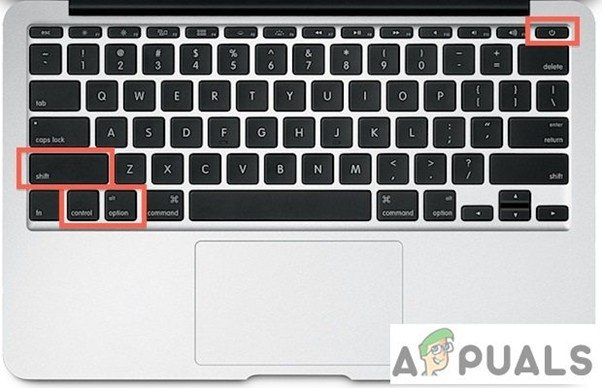
Reset the SMC of Mac to Defaults - Then release the four keys and press the Power button to power on the system.
- Once powered on, check if the USB accessories disabled issue is resolved.
Disable DDC/ CI Function of the Monitor
The Display Data Channel / Command Interface (aka as DDC/CI) is a collection of different digital communication protocols between a PC and a display unit. This interface allows the users to control compatible computer graphics properties from the monitors. If your monitor is DDC/CI complaint and the USB accessories disabled message is caused when the monitor is connected, then disabling the DDC/ CI interface in the monitor settings may solve the problem.
- Launch the monitor’s Setup menu and select System or System Input.
- Now open DDC/ CI and select Off. For some models, you may find the option in the OSD Setup menu.
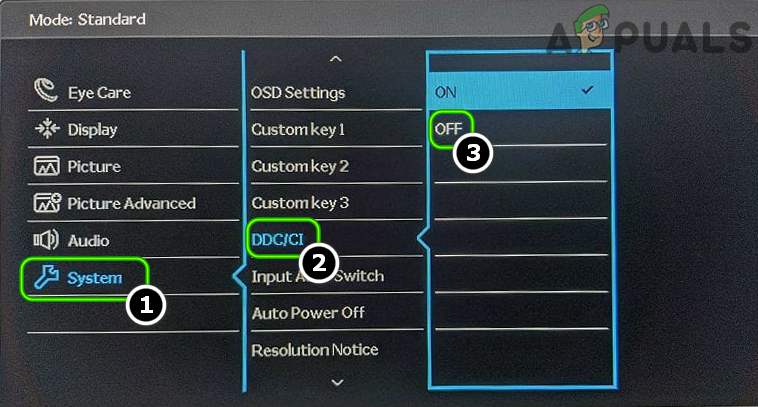
Disable DDI/ CI in the Monitor’s Settings - Then check if your system is clear of the USB disabled issue.
Disable Notifications or Enable Do Not Disturb Mode of Your System
If none of the above solutions did the trick for you, then disabling the notifications or enabling the do not disturb mode of your computer may solve the problem. But keep in mind that this option will only stop the notifications if the USB ports are working fine for you. Also, note that this will disable all notifications like calendar notifications, etc.
- Launch the Preferences and open Notifications.
- Now disable all the notifications and check if the USB accessories disabled message is cleared.
- If you do not like this option or it does not work, open the Control Center and click on the Do Not Disturb.
- Now close the Control Center and hopefully, the USB accessories issue is resolved.
- Also, you can use the following code to disable or enable the Notifications for 1 hour:
Disable:-
sudo launchctl unload -w /System/Library/LaunchDaemons/com.apple.UserNotificationCenter.plist
Enable:-
sudo launchctl load -w /System/Library/LaunchDaemons/com.apple.UserNotificationCenter.plist
If the issue is still there or you do not want to disable notifications, then you get your Mac checked for a hardware issue.

